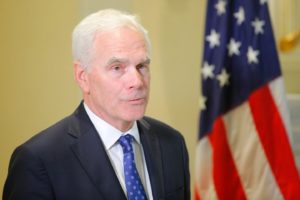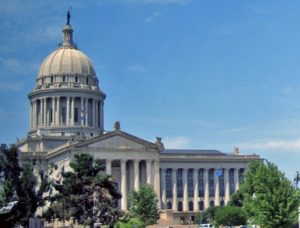Proposed bureaucratic tax rules threaten the success of school choice program in Oklahoma
The public has an opportunity to weigh in with the Oklahoma Tax Commission (OTC) about its proposed rules for the state’s new school choice scholarship program.
Under the proposed rules, the…

The public has an opportunity to weigh in with the Oklahoma Tax Commission (OTC) about its proposed rules for the state’s new school choice scholarship program.
Under the proposed rules, the success of the newly-passed program is put at risk, Dave Bond, vice president for advocacy at the Oklahoma Council of Public Affairs (OCPA), told The Lion. OCPA is encouraging the public to comment online.
The OTC, the state’s tax collection agency, has proposed rules for the program which are needlessly burdensome, said Bond.
“We just want to make sure that there is nothing in these rules that conflicts with the legislation that put this program in place or that discourages families in Oklahoma from utilizing this terrific new opportunity for their children to be in a better place,” Bond said.
In April, Oklahoma Gov. Kevin Stitt signed two pieces of legislation which created the state’s first universal school choice program, in the form of a tax credit.
Now, the OTC said that they will be sending federal IRS form 1099 to families who receive the credit, which could encourage the IRS to treat the program participation as taxable, penalizing families.
Critics fear that the 1099s could be a strategy from the Biden administration to impose taxes on families who use tax credits in lieu of a more traditional school voucher program.
The Biden administration has pushed publicly against school choice, more dramatically than any administration in history, aligning itself completely with the public teachers’ unions.
Additionally, under the OTC’s rules, families have to apply individually for each child and for each school semester in the year, according to Bond.
That potentially means a child could be eligible for the program in one semester, but denied the dollars for the next semester.
Other burdensome rules include dunning families who owe taxes to the state.
“As a state, we don’t send a child home from public school because their parents haven’t paid their taxes,” Bond told The Lion.
The commission proposes sending a check directly to the schools in the parent’s name, requiring the parents to then separately endorse the check, said local KOSU News.
The original intent of the legislation, however, was to send the checks directly to the parents via paper checks or direct deposit, as OCPA noted in May.
Now KOSU News says it’s unclear what happens to any money that’s left over after school tuition and fees are paid.
The OCPA is also concerned about what happens to any unallocated funds, noting “those resources should become available for another family to be able to access the opportunity for that same school year.”
Overall, the OCPA is asking for changes in 10 areas.
In addition to those listed above, the OCPA is asking citizens to demand changes in the following areas:
- Create clear eligibility criteria: If not clarified, it’s possible that only students already enrolled today in accredited private schools will be eligible.
- Avoid unnecessary data collection: Remove requirements for schools to collect social security numbers or other sensitive personal data of parents or students.
- Minimize school regulations: The program’s focus should be on parents and students, not additional regulations on schools.
- Create clarity for notifications: Add clarity regarding when families will be notified whether or not they will receive the credit, when the payments will be received, and other relevant information.
- Broaden the accreditation definition: Update the rules to reflect the broadest definition of “accredited” as outlined in the legislation, ensuring consistency with the program’s intent.
Bond emphasized that these are currently just “proposed rules” and the public plays a vital role in influencing policy by making public comments on proposals.
“This law was passed earlier this year by forward thinking lawmakers in our state capitol who truly want Oklahoma families to have the best school choice opportunities of any state in the country,” Bond added. “And we want to make sure that this program is successful in achieving that.”



